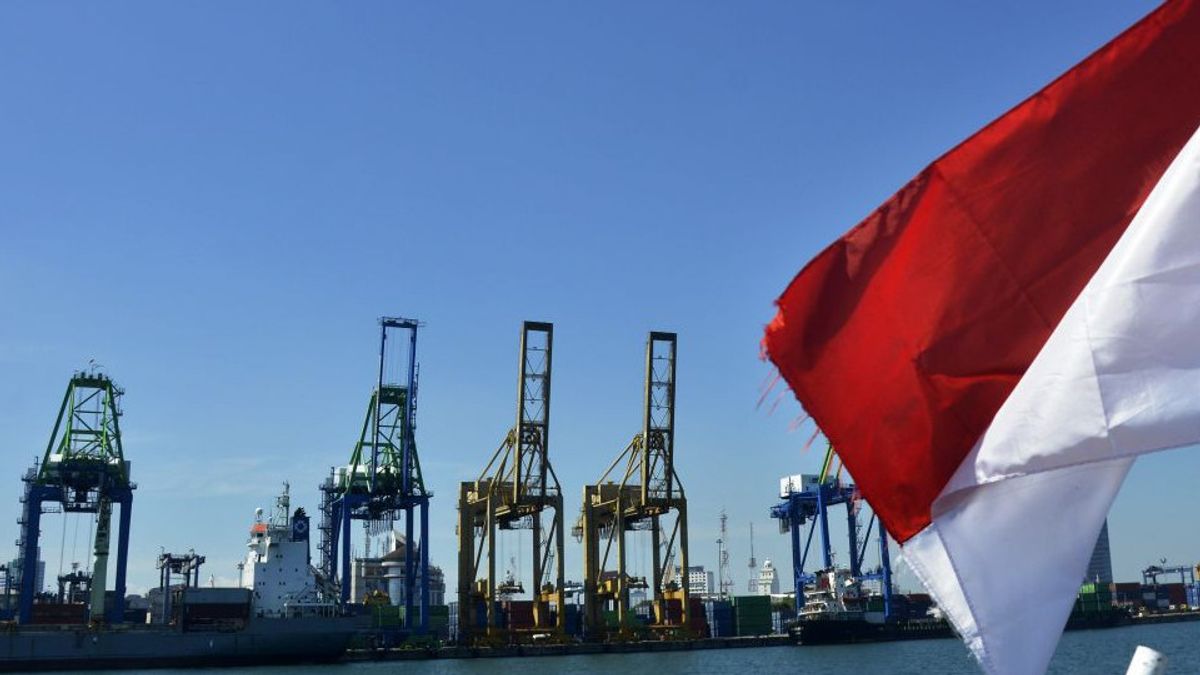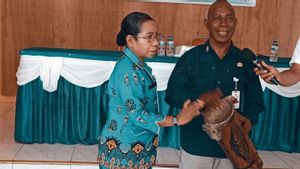JAKARTA - Researcher from the Indonesian Center of Reform on Economics (CORE) Yusuf Rendy Manilet assessed that the government needs to encourage the growth of the processing industry so that the 8 percent economic growth target of the Prabowo-Gibran Government can be achieved.
Based on a report from the Central Statistics Agency (BPS), the realization of economic growth in the third quarter of 2024 which was 4.95 percent (yoy) was largely supported by the processing industry which grew 4.72 percent (yoy) and had distribution to GDP of 19.02 percent.
"If we look at the business sector even though the processing industry can grow 4.72 percent on an annual basis, but when compared to the achievement in the same period last year which reached 5.20 percent, this certainly needs to be the government's own concern. This is because the processing industry is one of the economic machines, and when this industry experiences a slowdown in growth, it will also affect overall economic growth," Yusuf said in Jakarta, quoted from Antara, Tuesday, November 5.
He considered that if President Prabowo was aiming for 8 percent economic growth, in the future the processing industry should be pushed higher.
Responding to the release of BPS data regarding Indonesia's economic growth, Yusuf said that there was a downward trend in economic growth in the third quarter of 2024. In the first quarter of 2024, Indonesia recorded economic growth of 5.11 percent (yoy), then in the second quarter of 2024 it was 5.05 percent (yoy), and in the third quarter it was recorded at 4.95 percent (yoy).
"It should be underlined if you look at the performance of economic growth in the third quarter, there is a slowdown in economic growth on an annual basis from the first quarter to the third quarter," he said.
However, the cumulative economy of Indonesia recorded growth of 5.03 percent during the January to September 2024 period.
BPS reports, in terms of expenditure, economic growth is still largely supported by household consumption. Household components in the third quarter grew 4.91 percent (yoy) and contributed to GDP by 53.08 percent. The growth in household consumption slightly slowed down compared to the second quarter of 2024 which was 4.93 percent.
"This is actually also in line with conditions in the third quarter where deflation, then also manufacturing PMIs whose data is not very good, and describe the condition of people's purchasing power, especially those experiencing a slowdown in the quarter," he explained.
Furthermore, Yusuf added that to restore and increase people's purchasing power, it is very important for the government to implement effective policy collaboration.
In the context of monetary policy, Bank Indonesia has taken progressive steps by lowering the benchmark interest rate, which aims to loosen monetary conditions. However, this effort also needs to be supported by strategic and directed fiscal policies.
Meanwhile, from a fiscal point of view, it is important for the government to optimize spending realization that is not only efficient but also specific targets that can directly support increasing purchasing power. This can include a more focused social assistance program or subsidies designed to allocate resources more effectively to those in need.
BACA JUGA:
"Especially when we talk about contexts in the rest of this year, I think the realization of government spending will also directly or indirectly affect the economic growth target for at least 2024," added Yusuf.
On Tuesday, November 5, Plt. Head of the Central Statistics Agency (BPS) Amalia Adininggar Widyasanti revealed that Indonesia's economic growth based on the value of GDP reached 4.95 percent (yoy) in the third quarter of 2024.
"Indonesia's economy is based on the amount of Gross Domestic Product in the third quarter of 2024 at a current price of IDR 5,638.9 trillion, based on a constant price of IDR 3,279.6 trillion, so that Indonesia's economic growth in the third quarter of 2024 when compared to the third quarter of 2023 or year-on-year growth of 4.95 percent," said Amalia Adininggar Widyasanti.
The English, Chinese, Japanese, Arabic, and French versions are automatically generated by the AI. So there may still be inaccuracies in translating, please always see Indonesian as our main language. (system supported by DigitalSiber.id)
















